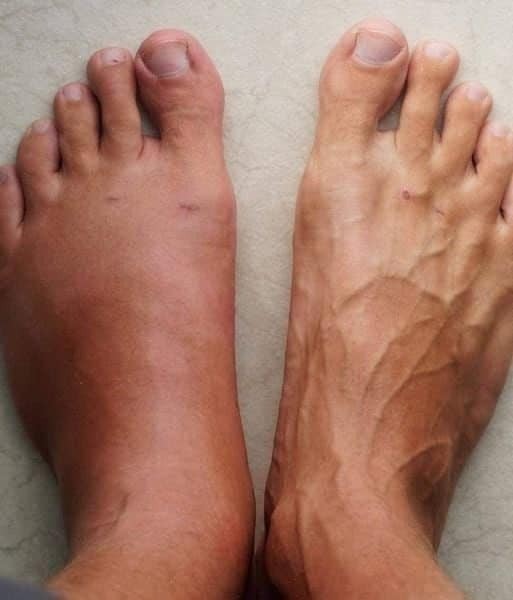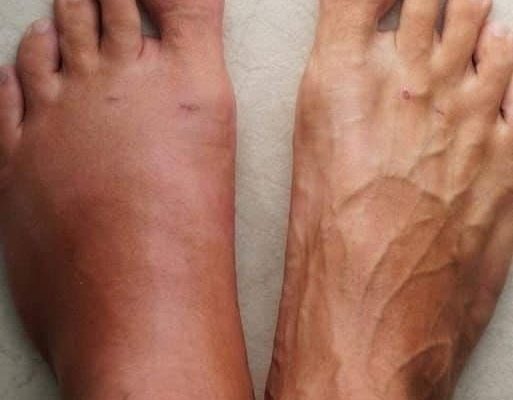Who Should You Consult for Swelling?
The healthcare professional you should consult depends on the location, duration, and severity of the swelling, as well as any other symptoms you’re experiencing.
1. Primary Care Physician (PCP)
Your primary care physician is a good starting point if you’re experiencing unexplained or persistent swelling. They can perform an initial examination, take your medical history, and potentially order tests to determine the cause. Based on their findings, they may treat you directly or refer you to a specialist.
2. Cardiologist
If your swelling is accompanied by shortness of breath, fatigue, chest pain, or if it is predominantly in the legs and ankles, it may be related to heart problems, such as congestive heart failure. A cardiologist specializes in heart health and can perform tests like echocardiograms, stress tests, and EKGs to assess your heart function and identify potential issues causing the swelling.
3. Nephrologist (Kidney Specialist)
Swelling, especially around the eyes, face, hands, and feet, can be a sign of kidney issues, such as chronic kidney disease or nephrotic syndrome. If your primary care physician suspects a kidney-related cause, they may refer you to a nephrologist who can perform urine and blood tests to evaluate kidney function.
4. Endocrinologist
Hormonal imbalances, particularly related to the thyroid, can sometimes cause swelling or puffiness, especially in the face. An endocrinologist specializes in the body’s glands and hormones. If your swelling is linked to symptoms like fatigue, weight gain, or sensitivity to cold, you might be referred to an endocrinologist to test for conditions like hypothyroidism.
5. Rheumatologist
A rheumatologist treats autoimmune and inflammatory disorders, such as rheumatoid arthritis and lupus, which can lead to joint swelling and stiffness. If your swelling is accompanied by joint pain, redness, or other signs of inflammation, a rheumatologist can help diagnose and treat the underlying autoimmune condition.
6. Vascular Specialist
A vascular specialist focuses on blood vessels and circulation issues. Swelling in the legs, especially if it’s persistent and associated with a feeling of heaviness or pain, may be due to poor blood circulation, deep vein thrombosis (DVT), or varicose veins. A vascular specialist can perform tests like ultrasounds to assess blood flow and diagnose potential vascular problems.
7. Pulmonologist
In cases where swelling is accompanied by respiratory symptoms like difficulty breathing, a pulmonologist may be consulted. Conditions such as pulmonary hypertension or lung disease can cause edema, particularly in the legs, due to increased pressure in the blood vessels of the lungs.
8. Dermatologist
If the swelling is localized to the skin and is accompanied by symptoms like redness, itchiness, or rash, a dermatologist can help. They specialize in skin conditions and can diagnose issues like allergic reactions, infections, or skin disorders that might be causing the swelling.
When to Seek Emergency Help
In some cases, swelling can be a sign of a serious or life-threatening condition. Seek immediate medical attention if you experience any of the following:
- Sudden or severe swelling, especially in one leg, which could indicate deep vein thrombosis (DVT).
- Swelling along with chest pain, shortness of breath, or dizziness, as this could suggest a heart attack or pulmonary embolism.
- Facial or throat swelling, which could indicate an allergic reaction or anaphylaxis.
- Persistent, unexplained swelling with pain, redness, or warmth, which could be a sign of an infection or blood clot.
Common Causes of Swelling
Understanding the potential causes of swelling can help you determine the right specialist to consult. Some common causes include:
- Heart Conditions: Congestive heart failure, pericarditis.
- Kidney Disorders: Chronic kidney disease, nephrotic syndrome.
- Liver Disease: Cirrhosis, hepatitis.
- Thyroid Issues: Hypothyroidism.
- Venous Insufficiency: Varicose veins, DVT.
- Infections and Allergies: Cellulitis, anaphylaxis.
- Medications: Certain blood pressure medications, steroids, and NSAIDs can cause fluid retention.
- Autoimmune Disorders: Rheumatoid arthritis, lupus.
- Injuries: Sprains, fractures, or trauma to an area.
- Lymphedema: Blockages in the lymphatic system.
Conclusion
Swelling can have numerous causes, from mild injuries to serious medical conditions. By paying attention to the accompanying symptoms and consulting the appropriate specialist, you can receive an accurate diagnosis and timely treatment. If you’re ever unsure, starting with a primary care physician is a good first step. Remember, early intervention can prevent complications, so don’t hesitate to seek help if you have persistent or troubling swelling.




